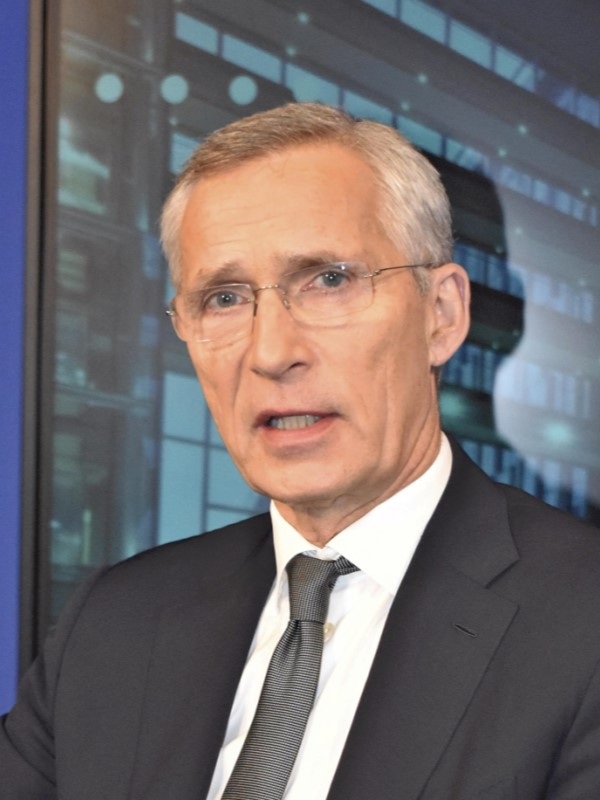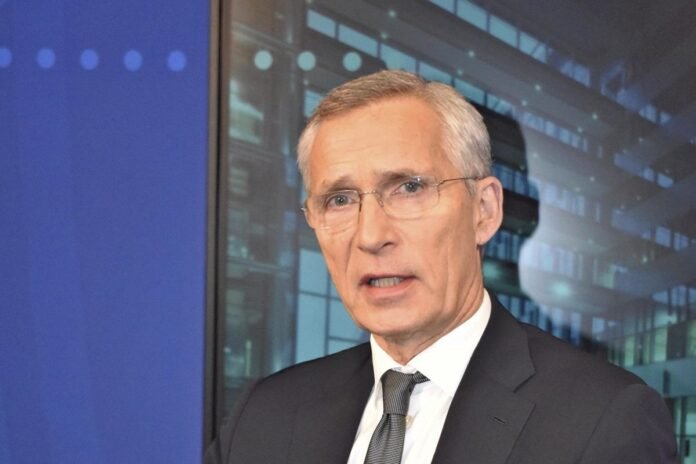NATO Secretary General Jens Stoltenberg speaks during an interview with the Yomiuri Shimbun at NATO headquarters in Brussels on June 27.
15:32 JST, July 3, 2024
BRUSSELS — The North Atlantic Treaty Organization is trying to strengthen partnerships with Japan, South Korea, Australia and New Zealand, as China “has become a challenge to our values,” NATO Secretary General Jens Stoltenberg said in a recent interview with The Yomiuri Shimbun.
Leaders of NATO member states are set to meet in Washington starting Tuesday. Leaders of the four countries in the Asia-Pacific region are also invited to the upcoming summit. Given the threat posed by China, Stoltenberg said NATO will seek to reach an agreement with the four countries on strengthening cooperation on arms control, technological development and countermeasures against cyberattacks.
- According to the Secretary-General, there are three main items on the agenda for the meeting:
- • The problems Ukraine faces amid Russian aggression
- • NATO’s deterrence capabilities and defensive measures
- • Strengthening partnerships with the four countries in the Asia-Pacific region: Japan, South Korea, Australia and New Zealand.
Since Russia began its aggression against Ukraine, NATO has strengthened ties with the four countries, out of vigilance against authoritarian states.
“We do not see China as an adversary, but at the same time we see that China is a challenge to our values, our interests and our security,” Stoltenberg said, adding that sources of concern include how China “threatens its neighbors, threatens Taiwan, but also its behavior in the South China Sea.”
He pointed out that China’s advanced technologies and exports of electronic devices support Russia’s production of drones and missiles, which are used in the ongoing aggression against Ukraine.
“China is fomenting the biggest war in Europe since World War II, and that is why we must take China seriously,” he said.
To further increase pressure on Beijing and stabilize the Asian region, he addressed cooperation with the four countries, stressing the importance of “ensuring that we fill that partnership with substance,” indicating NATO’s intention to deepen concrete cooperation measures.
Stoltenberg was cautious, however, about taking concrete measures in the event of an emergency in and around Taiwan. “NATO is an alliance of North America and Europe. And we will remain an alliance of North America and Europe,” he said.
Last year there was a plan for NATO to open a liaison office in Tokyo, but he said: “I do not expect any decisions on a NATO office in Tokyo at this summit.” His comments indicated that he did not want to excessively provoke China.
Regarding the ongoing support measures for Ukraine, which have been decided independently by each NATO member state, he said: “A fair burden-sharing among supporting allies will make it easier to sustain support in the long term.” He expressed his wish for a review of the current mechanism to be decided at the summit.
Russia has indicated that it may ease the conditions for the use of nuclear weapons.
But Stoltenberg said: “We are monitoring everything very closely, but we do not see any threat to any NATO ally,” adding: “We have not seen any changes in Russia’s nuclear posture that would require changes in ours.”
American fighter jets have been delivered to Europe as a measure to maintain NATO’s nuclear deterrent capabilities. Asked about replacing F-16s with F-35s, he said: “It’s an ongoing process.”

Jens Stoltenberg
Norwegian-born Stoltenberg, 65, served twice as the country’s prime minister, from 2000 to 2001 and from 2005 to 2013. He took his current post about six months after Russia announced its annexation of the Crimean Peninsula in southern Ukraine in March 2014. He was set to step down in 2022, but his term as secretary-general was extended amid Russian aggression against Ukraine. He is known for his ability to coordinate and rarely makes a blunder.



